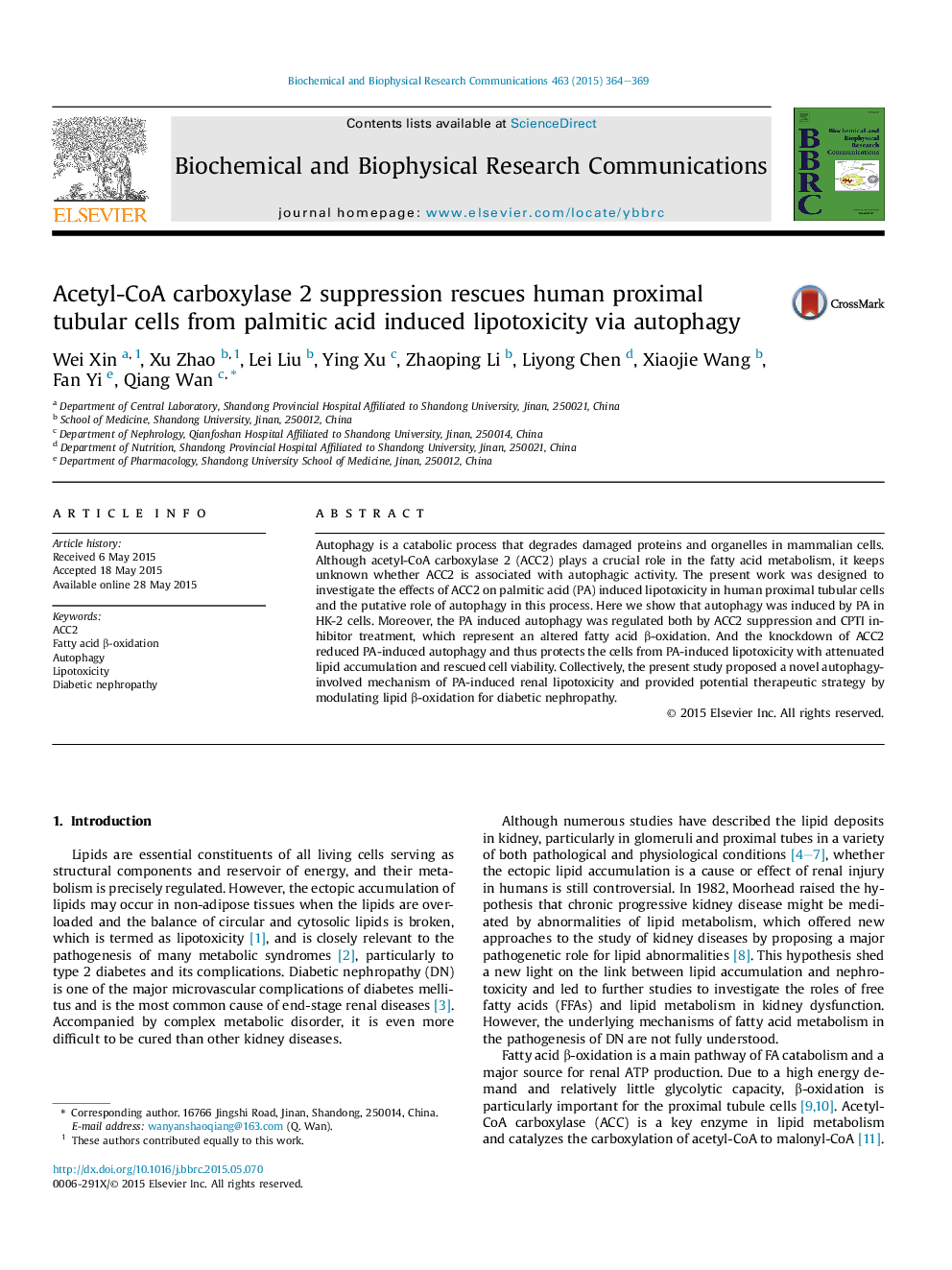| Article ID | Journal | Published Year | Pages | File Type |
|---|---|---|---|---|
| 10751070 | Biochemical and Biophysical Research Communications | 2015 | 6 Pages |
Abstract
Autophagy is a catabolic process that degrades damaged proteins and organelles in mammalian cells. Although acetyl-CoA carboxylase 2 (ACC2) plays a crucial role in the fatty acid metabolism, it keeps unknown whether ACC2 is associated with autophagic activity. The present work was designed to investigate the effects of ACC2 on palmitic acid (PA) induced lipotoxicity in human proximal tubular cells and the putative role of autophagy in this process. Here we show that autophagy was induced by PA in HK-2 cells. Moreover, the PA induced autophagy was regulated both by ACC2 suppression and CPTI inhibitor treatment, which represent an altered fatty acid β-oxidation. And the knockdown of ACC2 reduced PA-induced autophagy and thus protects the cells from PA-induced lipotoxicity with attenuated lipid accumulation and rescued cell viability. Collectively, the present study proposed a novel autophagy-involved mechanism of PA-induced renal lipotoxicity and provided potential therapeutic strategy by modulating lipid β-oxidation for diabetic nephropathy.
Related Topics
Life Sciences
Biochemistry, Genetics and Molecular Biology
Biochemistry
Authors
Wei Xin, Xu Zhao, Lei Liu, Ying Xu, Zhaoping Li, Liyong Chen, Xiaojie Wang, Fan Yi, Qiang Wan,
